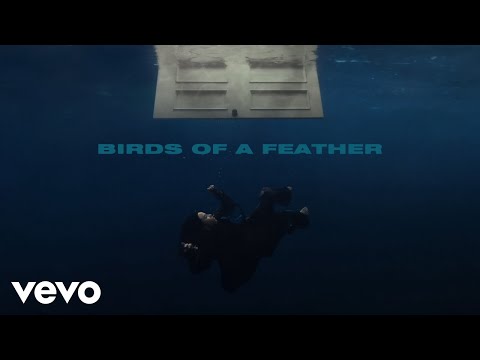Now 22, she broke out at 13 when her song “Ocean Eyes” went viral on SoundCloud; “Bad Guy,” the smash single from her star-making 2019 debut album, scoffed at the suspicions of a crush’s girlfriend: “You said she’s scared of me? I mean, I don’t see what she sees.”
Eilish is still pondering the illusory nature of perception on “Hit Me Hard and Soft,” her third studio LP in a career that’s already brought her nine Grammys, two Oscars and more than 100 million followers on Instagram. The album opens with “Skinny,” a breathy ballad in which she observes that “people say I look happy just because I got skinny.” Disappointed but not surprised, she’s continuing her thoughts on celebrity from 2021’s “Happier Than Ever,” which arrived as part of a wave of high-profile records (including ones by Olivia Rodrigo and Lorde) questioning the healthiness of pop’s social media era.
“The internet is hungry for the meanest kind of funny,” she sighs in “Skinny,” “And somebody’s gotta feed it.”

Yet as its title suggests, the ravishing “Hit Me Hard and Soft” moves beyond looking to explore the more tactile pleasures and risks of Eilish’s other senses. Sequenced intentionally, no doubt, right after “Skinny,” “Lunch” is a funky come-on about enjoying a woman’s body — “She dances on my tongue / Tastes like she might be the one” — while the rootsy “Wildflower” compares her involvement in a love triangle to the torture of being burned alive: “You say no one knows you so well,” she goes on, “But every time you touch me I just wonder how she felt.”
With 10 songs in just under 45 minutes — a study in crispness here in the age of “Cowboy Carter” and “The Tortured Poets Department” — Eilish’s album gives the impression of someone who’s accepted the unnatural demands of stardom and wants to figure out how to lead a full life in spite of them.
“Hit Me Hard and Soft” mostly upholds Eilish’s signature electro-goth sound: the blend of folky guitars, glassy synths and programmed beats she’s been developing with her brother and producer, Finneas, since the two began making music in their parents’ house in Highland Park. But the newfound emotional liberation in her storytelling extends to the adventurous structures of tunes like “L’Amour de Ma Vie,” which starts out as a low-key soul shuffle before transforming into a propulsive rave jam, and “Bittersuite,” which makes good on its title with three distinct parts.
In an unusual decision for this proudly self-contained duo, Eilish and Finneas welcomed contributions in the studio from their touring drummer, Andrew Marshall, and the Attacca string quartet (though both fit seamlessly into the siblings’ established sonic universe). What registers as a bigger shift is the gutsiness of Eilish’s singing: Long known as a committed whisperer, she belts here in a way we’ve never heard from her before; it’s a total thrill to witness her climb up, up, up in “The Greatest,” a thrashing rock song about unrequited love in which she congratulates herself for surviving “all the times I waited for you to want me naked.”

That survivor’s chutzpah surfaces again in the skulking “The Diner,” which she narrates from the imagined perspective of a stalker; the song is filled with unnerving details: “I came in through the kitchen looking for something to eat / I left a calling card so they would know that it was me.” Yet Eilish, who presumably drew from real-life experiences she’s discussed, delivers the song with a smirk. She even offers her version of a breezy summertime bop in “Birds of a Feather,” with a promise of never-ending devotion over lush acoustic guitars set to an easygoing groove.
“I want you to see how you look to me,” she tells her lover — a fresh application for an old instinct.
